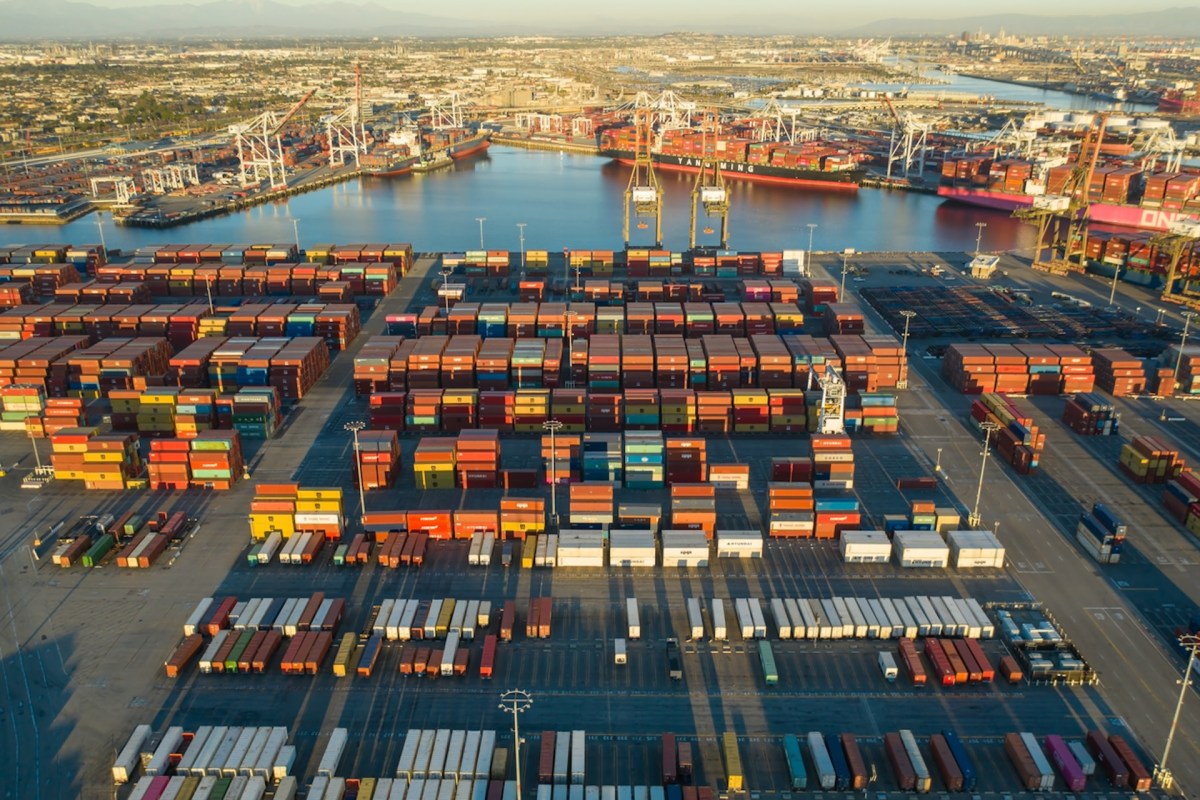In an exciting step toward a greener future, California is pushing electric trucks as the way forward for cargo transport.
The state recently banned new registrations of carbon-fuel trucks at ports in favor of zero-emission alternatives, signaling a transformative shift in the industry, as reported by The New York Times.
Starting this week, diesel rigs can no longer be added to the list of new vehicles approved to move goods in and out of California's bustling ports. The state sees this as a prime opportunity to make substantial progress in reducing emissions from the trucking sector, which is currently a major source of carbon pollution.
Cleaning up the approximately 30,000 trucks registered at the Ports of Los Angeles and Long Beach, the nation's primary hub for container cargo, could lead to a significant decrease in both carbon emissions and lung-harming particulate matter in the air. Residents in port-adjacent communities like Wilmington currently face constant truck traffic and pollution, underscoring the importance of this transition.
"Nobody opens their windows," said Nancy Gonzalez, a Wilmington resident, through an interpreter. "Nobody."
While challenges remain in terms of electric truck costs and charging infrastructure, California is putting its weight behind this crucial shift. The state is offering truck purchase grants of up to $288,000 per vehicle to support operators in going electric. The goal is to spur investment and innovation to fully decarbonize the port truck sector by 2035.
Watch now: Alex Honnold test drives his new Rivian
As the electric truck market matures, the benefits are already becoming clear. One operator found that charging his electric fleet costs about 40% less than diesel. Another appreciated that his company's switch to employee drivers rather than polluting independent contractors helps meet growing consumer demand for sustainable practices.
"It is a big impact on my operations," said Neri Diaz, owner of Harbor Pride Logistics, a trucking company making the electric transition.
With California serving as a model, states like New York, New Jersey, Oregon, and Washington are taking notice. The Golden State's bold policies and investments offer a road map for others looking to clean up a major source of emissions while improving community health and may help to inspire others to change the way they get around toward cleaner options.
"In the long run, I am quite confident we can decarbonize the heavy-duty truck sector," said James Sallee, a professor at the University of California, Berkeley, referring to California's plan. "But I don't know that the industry is ready to overcome the various barriers to rapid deployment."
While hurdles remain, California's determination points to a cleaner, more breathable future.
Join our free newsletter for cool news and actionable info that makes it easy to help yourself while helping the planet.









